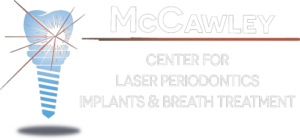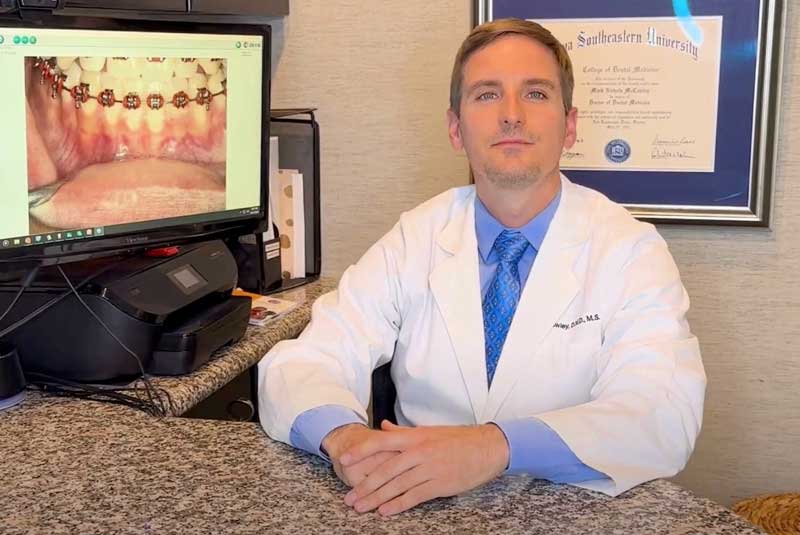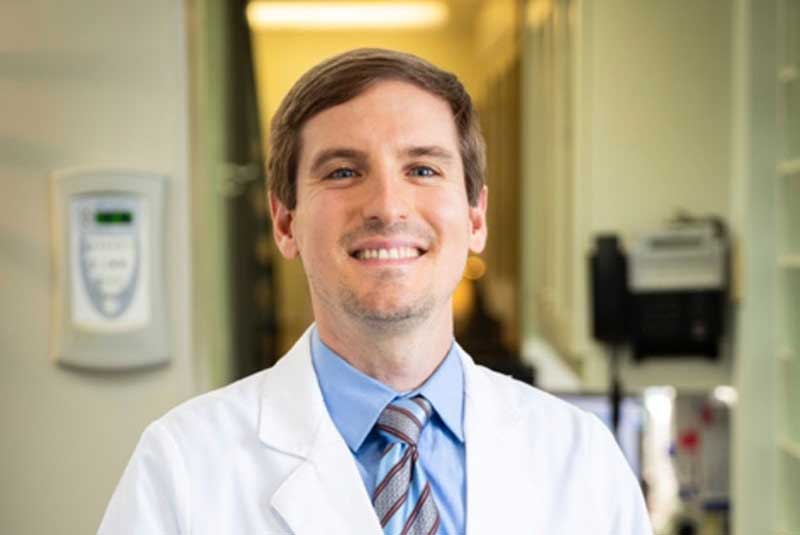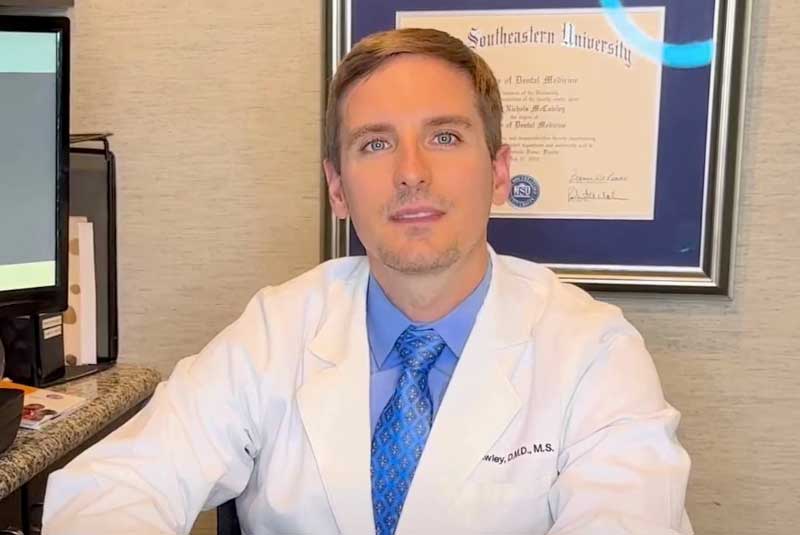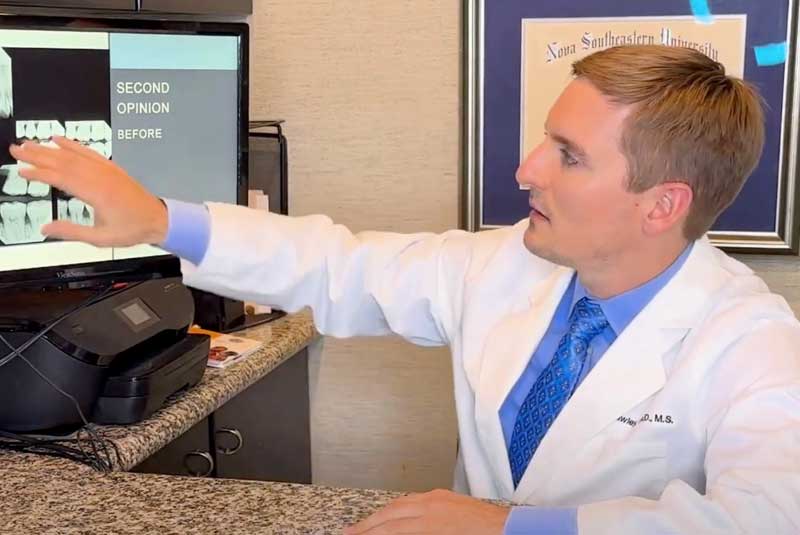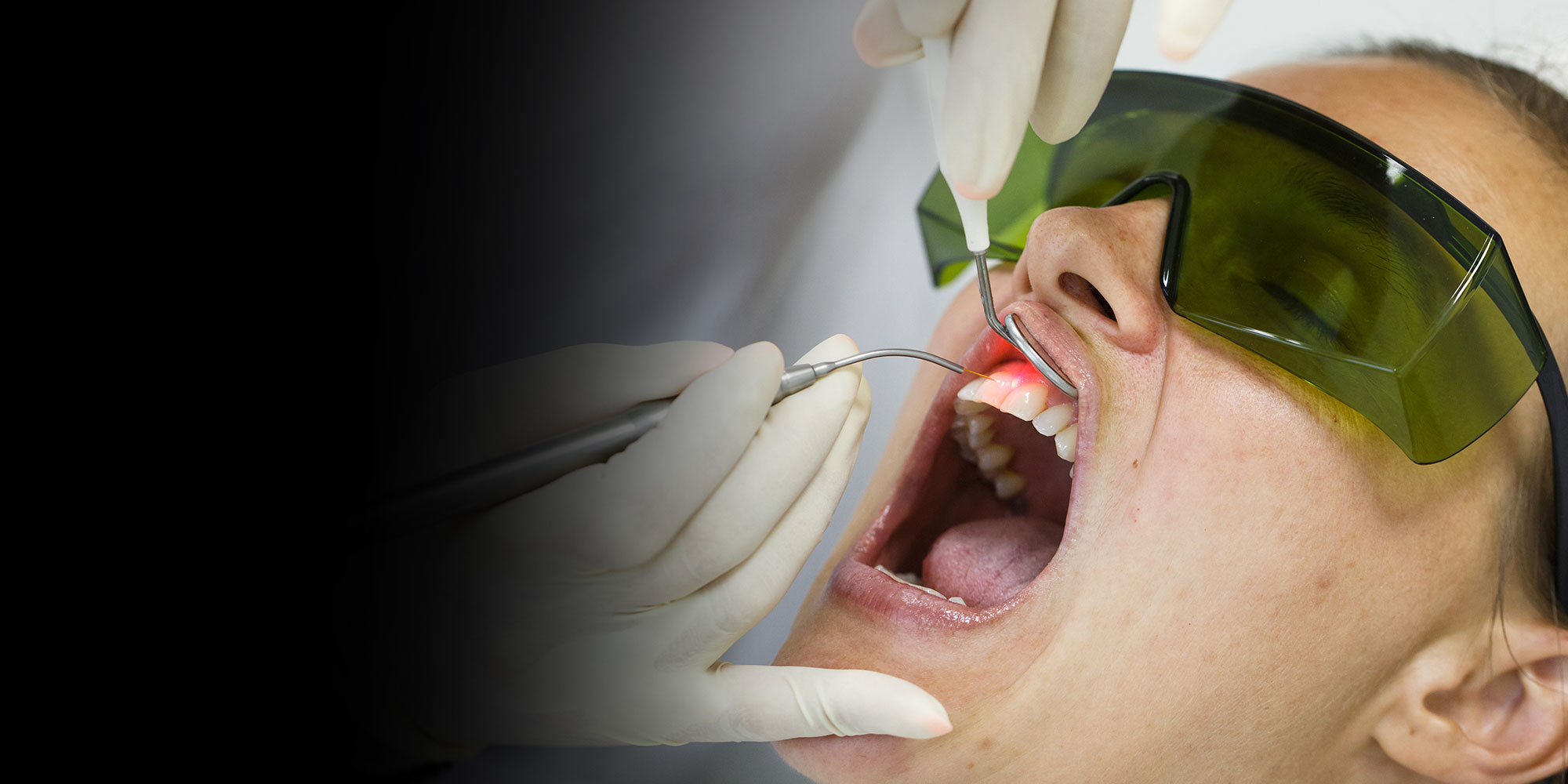
Drs. Tom and Mark McCawley Are Noted Authorities on laser gum disease treatment in Ft. Lauderdale & Hollywood, FL . In 1992 they published one of the first studies ever on laser periodontal surgery in the prestigious Journal of Periodontology.
Patients often wonder how to find the right laser periodontist to treat their periodontal disease. We suggest that you ask 5 key questions:
Having laser gum disease treatment in Fort Lauderdale, FL with Drs. Tom and Mark McCawley is favored by patients with moderate to severe periodontal disease, as provides unique benefits that other treatment cannot.
To determine how much damage has occurred and how deep your periodontal pockets are, Dr. McCawley will use a special measuring instrument.
To target and eliminate the bacteria that are causing connective tissue to detach from the tooth roots, Dr. McCawley uses a state of the art dental laser called the PerioLase® MVP-7™, which is FDA cleared and one of the leading lasers specifically designed for laser gum disease treatment in Fort Lauderdale, FL. Laser light is precise and unmatched in its ability to eliminate bacteria and diseased tissue without harming the gum line, so there is little bleeding and swelling.
Ultrasonic scalers are used to remove the deposits of tartar between the teeth and gums. This step is sometimes performed in conjunction with the laser, which can be useful for softening the particles prior to their removal.
After ridding the teeth of tartar, Drs. Tom and Mark McCawley uses the PerioLase® again to stir a bit of bone and blood in order to create small blood clots around the teeth. These clots provide a natural defense against germs and bacteria so the gum tissues can heal.
To encourage connective tissue to reattach to the roots surfaces of the teeth, Dr. McCawley compresses the tissue against the teeth and nature does the rest. With laser periodontal disease treatment, sutures are never required.
The final step is to adjust the bite to ensure proper alignment and comfort, which is especially important for patients who have experienced significant bone loss. In fact, laser actually works to generate new bone growth, so that teeth have a better chance of surviving.
